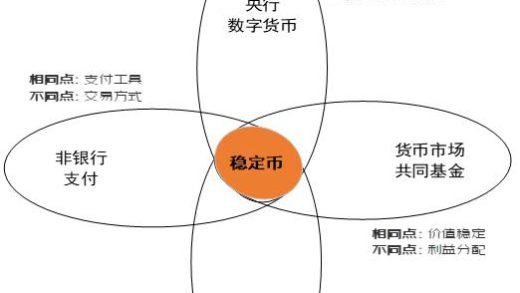
Positive Reviews: The Business Rationality Behind Sam’s Expansion and Supply Chain Optimization
If we set aside the emotional factors, the business logic behind Sam’s controversial product selection adjustment this time is not entirely incomprehensible. As a warehouse supermarket with the core model of “membership system + strict selection”, Sam’s rapid expansion in the Chinese market in recent years is essentially a profound game about scale, efficiency, and supply chain capabilities.
First of all, rapid expansion requires a more stable supply chain support. According to news information, Sam plans to open 11 new stores in China in 2025, setting a new record since it entered China 29 years ago, and 6 new stores have been opened in the first half of the year, with the expansion speed far exceeding expectations. This scale of expansion puts extremely high requirements on the stability of commodity supply – it is necessary to ensure the richness of SKUs to meet the needs of members in different regions, and at the same time control costs to maintain the core label of “ultimate cost – effectiveness”. At this time, introducing channel – customized products of popular brands such as Orion and Weilong may be one of Sam’s strategies to solve the supply chain pressure. These brands themselves have mature production capabilities and a national supply network, which can quickly respond to Sam’s order needs and avoid out – of – stock problems caused by insufficient production capacity of private – label or niche brands. As mentioned in the news, “popular brands can better meet the demand for supply chain stability under high – growth rates in terms of volume”, and this choice is reasonable in terms of business efficiency.
Secondly, Sam’s membership model is still essentially a retail logic of “centering on user needs”. As of June 2025, the number of paid members of Sam in China has exceeded 9 million, and the annual income from membership fees has exceeded 2.34 billion yuan. This data itself verifies the success of its model. And the “pure profit” nature of membership fees requires it to continuously create value for members through product selection and services. The “channel – customized products” criticized by some users in this controversy, such as Orion’s low – sugar pie and Weilong’s boneless duck feet, although they are popular brands, are essentially “exclusive products” jointly developed by Sam and suppliers, which are no different in essence from the chocolate – filled milk customized by Mengniu for Sam and the lemon – flavored chicken feet of Xiaohuya. Such products can not only reduce the user’s decision – making cost by leveraging the recognition of mature brands, but also provide differentiated value through customization (such as low – sugar formula), which conforms to Sam’s product selection logic of “strict selection + cost – effectiveness”.
In addition, Sam’s deep dependence on the Chinese local supply chain is precisely the key to its past success. As mentioned in the news, Sam’s popular products such as lime juice (cooperated with Shenzhen Jinbao) and Swiss rolls (produced by Enxicun) are all developed relying on the Chinese local supply chain, and even lead the industry’s product R & D trend. The introduction of customized products of popular brands this time is essentially a further utilization of the advantages of the Chinese supply chain – these brands have been deeply integrated into the Chinese consumer market, and their production capabilities, quality control standards, and innovation efficiency are not inferior to imported brands. From this perspective, Sam’s product selection adjustment is not a “lowering of standards”, but a rational choice based on the capabilities of the local supply chain.
Negative Reviews: Strategic Miscalculation and Loss of Emotional Value, the Crisis of Sam’s “Persona Collapse”
Although Sam’s adjustment is supported by business rationality, the “persona collapse” controversy it has triggered essentially exposes its deep – seated miscalculation of the Chinese market demand – excessive pursuit of scale and efficiency while ignoring the core demand of members for “emotional value”, resulting in a break between the brand’s high – end persona and the user experience.
First of all, the product selection adjustment directly impacts Sam’s “middle – class privilege club” persona. In the Chinese market, Sam’s membership fees (260 – 680 yuan) are not only a consumption qualification, but also regarded by some users as a label of “consumption taste” and “status symbol”. The establishment of this “special feeling” depends on the uniqueness of its product selection (such as imported goods and exclusive private – label brands) and the scarcity of quality (such as high – grade fresh produce). However, products such as Orion pies and Weilong duck feet put on the shelves this time are too popular (you can buy them at the downstairs convenience store), and their packaging designs lack the “Sam – exclusive feeling” (with huge logos and strong familiarity), which directly breaks the users’ psychological expectation of “Sam = high – end strict selection”. As users complain: “I don’t pay the membership fee to buy Orion products.” This psychological gap is essentially the loss of the brand’s emotional value – when Sam’s product selection becomes similar to that of ordinary supermarkets, the “privilege feeling” of its members loses its foundation.
Secondly, the long – term accumulation of quality control problems and their exacerbation after expansion further weaken user trust. As mentioned in the news, Sam’s quality control problems are not new: in 2022, Sam in Nanjing was fined for moldy strawberries; in 2024, the number of complaints on Black Cat increased by 65% year – on – year; in 2025, there were incidents of bad lychees and worms in nuts, all pointing to the weak links in its fresh produce and food quality control. With Sam’s accelerated expansion (11 new stores in 2025) and the increase in the proportion of online business (half of the sales come from online, relying on front – end warehouses), the complexity of the supply chain and the fulfillment risk have further increased. For example, although the front – end warehouse model improves the delivery efficiency, it also increases the uncontrollable factors in the storage and transportation links (such as the deterioration of fresh produce due to temperature fluctuations), and the gap between users’ high expectations for “express delivery” and the actual quality control is more likely to cause dissatisfaction. This vicious cycle of “scale expansion – quality control pressure – user complaints”, if not curbed in time, will shake Sam’s core label of “high – quality”.
Finally, the “information gap” between management changes and strategic adjustments has intensified users’ distrust. As mentioned in the news, the senior management of Sam in China changed in 2025 (Andrew Miles retired and Jane Ewing took over), and at the same time, the regions were split and decision – making power was decentralized. Although the official said that the adjustment was to “strengthen the local supply chain and improve efficiency”, users directly associated the product selection changes with “the new management’s pursuit of profit and disregard for users”. Behind this “information asymmetry” is Sam’s lack of communication with users – it failed to explain the logic of the product selection adjustment (such as the need for supply chain stability) to members in a timely manner and failed to actively respond to the improvement measures for quality control problems, resulting in users generalizing their individual dissatisfaction into doubts about the brand’s strategy.
Suggestions for Entrepreneurs: Finding a Balance between Scale Expansion and User Value
Sam’s “persona collapse” incident provides multi – dimensional inspiration for entrepreneurs, with the core being how to maintain users’ core needs and the brand’s emotional value during scale expansion.
First, clarify the users’ “core value anchor point” to avoid strategic adjustments deviating from users’ expectations. Sam’s core users are middle – class families, and the essence of their paid membership is to pay for “high – quality, uniqueness, and privilege feeling”. When entrepreneurs expand or adjust their strategies, they need to first clarify the users’ core needs (is it price, quality, or emotional recognition?), and ensure that every step of the adjustment (such as product selection and supply chain) does not deviate from this anchor point. For example, if the users’ core need is “uniqueness”, they need to be cautious when introducing popular brands, or strengthen the “Sam – exclusive” label through customized design (such as exclusive packaging and exclusive formulas) to avoid being similar to ordinary supermarkets.
Second, balance scale expansion and quality control capabilities, and establish a “scalable quality assurance system”. Sam’s quality control problems have intensified during the expansion period, which is essentially because the supply chain management ability has not kept up with the scale growth rate. When entrepreneurs expand, they need to upgrade the supply chain management synchronously: on the one hand, improve the traceability of quality control through digital tools (such as using the Internet of Things to monitor the warehouse temperature and blockchain to trace the origin of fresh produce); on the other hand, establish a hierarchical quality control standard for “front – end warehouses – large warehouses” and formulate differentiated quality assurance measures for different fulfillment models (such as express delivery and in – store self – pick – up). In addition, they can learn from Fat Donglai’s “excess compensation” model and repair trust through after – sales processing that exceeds users’ expectations (such as refunding the problematic product + additional compensation).
Third, attach importance to the “emotional value management” of the brand and establish a deep connection between users and the brand. Sam’s “persona collapse” is essentially the loss of users’ emotional recognition of the brand. Entrepreneurs need to upgrade the brand from a “functional label” to an “emotional community”: actively listen to users’ needs through user research (such as membership questionnaires and community interactions), and timely explain the logic of strategic adjustments (such as the product selection change is for more stable supply); strengthen the “privilege feeling” through exclusive membership activities (such as new product tasting parties and supply chain traceability tours); establish trust through transparent communication (such as regularly publishing quality control reports and public letters from management). For example, if Sam had explained to members in advance that “introducing customized products of popular brands is to ensure stable product supply during the expansion period while retaining the uniqueness of the core private – label brands”, it might have reduced users’ misunderstandings.
Fourth, be vigilant against the trust crisis caused by the “information gap” and establish an efficient user communication mechanism. In this controversy, users associated the product selection change with “management’s pursuit of profit”, which reflects the information gap between the brand and users. Entrepreneurs need to establish a regular communication channel (such as announcements on the membership APP and regular Q&A by community administrators) to actively synchronize the background, goals of strategic adjustments and the specific impact on users; for negative events (such as quality control problems), they need to respond quickly (such as publicly announcing the handling results within 24 hours) to avoid the fermentation of emotions.
In summary, Sam’s “persona collapse” is a trust crisis triggered by the imbalance between scale expansion, strategic adjustment, and users’ emotional needs. For entrepreneurs, this incident warns us that business rationality needs to be combined with users’ emotional needs, scale expansion needs to be based on quality and trust, and the brand’s “persona” is essentially users’ long – term recognition of its value – any adjustment that deviates from this recognition may trigger the risk of “persona collapse”.
- Startup Commentary”Three post-2005 entrepreneurs are reported to have secured a new financing of 350 million yuan.”
- Startup Commentary”Retired and Reemployed: I Became Everyone’s “Shared Grandma””
- Startup Commentary”YuJian XiaoMian Breaks Issue Price on Listing: Where Lies the Difficulty for Chinese Noodle Restaurants to Break Through in the Market? “
- Startup Commentary”Adjusting Permissions of Doubao Mobile Assistant: AI Phones Are a Flood, but Not a Beast”
- Startup Commentary”Moutai’s Self – rescue and Long – term Concerns”




